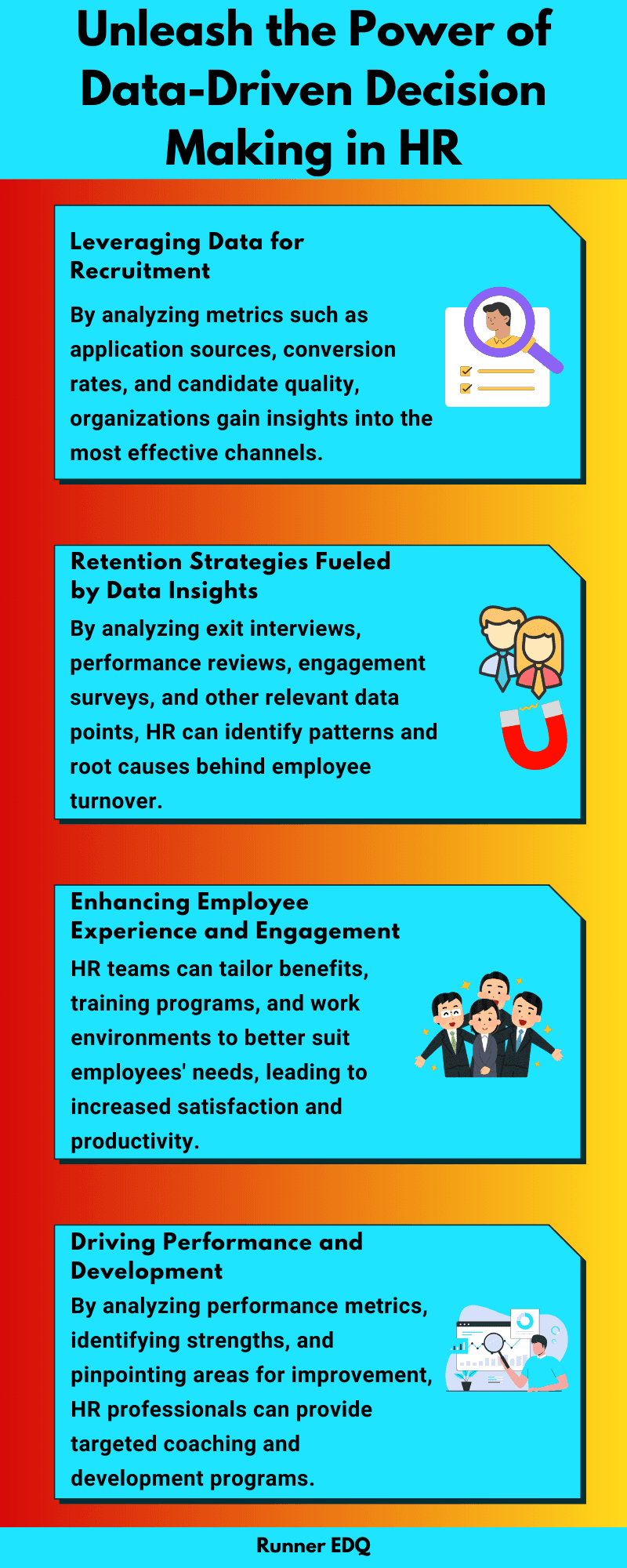The Evolution of Human Resources
3 MINUTE READ
Traditionally seen as a people-centric domain, Human Resources (HR) has evolved into a data-driven powerhouse, leveraging analytics and insights to make informed decisions. The era of gut-based decisions is giving way to a more precise and impactful approach - data-driven decision-making in HR.
Understanding the Shift: From Instinct to Insights
Historically, HR decisions often relied on intuition and past experiences. While valuable, these methods lacked the precision and depth offered by data analytics. Enter the era of data-driven HR. By harnessing the vast amounts of available data, HR teams can gain insights into employee behavior, performance trends, and engagement levels.
Leveraging Data for Recruitment
Data analytics revolutionizes recruitment by offering a comprehensive understanding of candidate sourcing channels. Instead of relying solely on gut instinct or historical practices, HR professionals can leverage data to assess which channels yield the most qualified candidates. By analyzing metrics such as application sources, conversion rates, and candidate quality, organizations gain insights into the most effective channels. This empowers HR teams to allocate resources more efficiently, investing in platforms or methods that consistently deliver the best candidates.
Furthermore, data analysis facilitates the evaluation of recruitment strategies. Metrics like time-to-hire, cost-per-hire, and candidate experience feedback can be tracked and analyzed. This data-driven approach allows HR to optimize processes, identify bottlenecks, and enhance the overall recruitment experience. Consequently, organizations can streamline their hiring processes, reducing time and costs while improving candidate satisfaction.
Retention Strategies Fueled by Data Insights
Data analytics plays a pivotal role in uncovering these insights. By analyzing exit interviews, performance reviews, engagement surveys, and other relevant data points, HR can identify patterns and root causes behind employee turnover. Whether it's dissatisfaction with work culture, lack of growth opportunities, or other factors, data-driven insights help HR professionals pinpoint areas that need improvement.
Armed with this information, HR can develop targeted retention strategies to address these pain points. Whether it's implementing career development programs, enhancing workplace culture, adjusting compensation and benefits, or improving leadership training, data-driven insights enable HR to tailor interventions that directly address the underlying causes of attrition. Consequently, organizations can reduce turnover rates, boost employee satisfaction, and retain top talent, ultimately fostering a more stable and productive workforce.
Enhancing Employee Experience and Engagement
The employee experience is a crucial aspect that directly impacts productivity and retention. Data analytics allows HR professionals to gauge employee sentiment, preferences, and engagement levels. By analyzing feedback, surveys, and performance metrics, HR teams can tailor benefits, training programs, and work environments to better suit employees' needs, leading to increased satisfaction and productivity.
Driving Performance and Development
Data-driven HR strategies are instrumental in shaping performance evaluations and development initiatives. By analyzing performance metrics, identifying strengths, and pinpointing areas for improvement, HR professionals can provide targeted coaching and development programs. This proactive approach not only enhances individual performance but also contributes to the overall success of the organization.
Conclusion: Empowering HR with RunnerEDQ’s Solutions
RunnerEDQ’s suite of services empowers HR professionals by providing robust analytics, predictive modeling, and actionable insights. From recruitment analytics that optimize sourcing channels to employee sentiment analysis aiding in creating a more engaging work culture, RunnerEDQ’s solutions align seamlessly with the principles of data-driven decision making in HR.
In essence, embracing data-driven decision-making in HR is not just a trend but a strategic imperative. The integration of data analytics into HR practices empowers professionals to make informed decisions, drive organizational growth, and nurture a thriving workplace culture. With RunnerEDQ’s innovative solutions complementing this approach, HR can truly harness the transformative power of data to shape the future of work.







